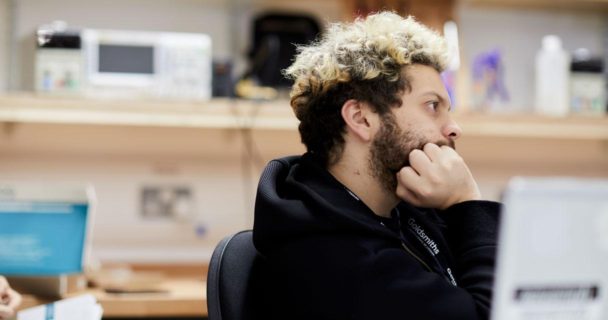User experience engineering can be imagined in two ways. Firstly, conventionally, we can talk about choosing technologies to ensure that users can achieve goals in ways which are optimised to fit them, their aspirations, capabilities and personalities. Every link in the chain of technologies is optimised to ensure that users are freed from the focus on technologies to a focus on the reason that they have for using technology.
Secondly, more creatively perhaps, we can imagine opening new opportunities, new experiences, for users through technology. Users can be transported to places that they can’t physically visit, they can interact with people they can’t physically meet, or they can learn by observing inaccessible worlds such as living cells or a chemical factory.
This innovative programme will explore how people experience the world around them, particularly when using technology. You’ll learn how each layer of technology – from core hardware through to the way that media is handled – can affect user experience and gain the skills for transforming user requirements into appropriate technical solutions.
A user’s experience of technology depends on the design and engineering choices that influence their interactions. Emerging and future technologies will exceed the capabilities available today, so our experts will give you the research needed to exploit and market new possibilities for the benefit of users.
The importance of human-computer interaction and good interface design is increasingly recognised as the key to the future of successful tech development. User-centric software and hardware continue to evolve and are becoming more important in product design as technological breakthroughs drive innovation. The ability to select and implement the appropriate technologies to deliver usable and satisfying solutions will address a current skill shortage and will equip students with in-demand vocational skills.
Why study the MSc User Experience Engineering?
- This specialist masters degree provides more focused employment possibilities than a more general computing programme.
- You’ll learn to design and produce computing-based systems and solutions that have been validated to meet the functional requirements of users, be accessible and inclusive, and provide users with a satisfying user experience.
- A variety of optional modules in advanced technologies and psychology means you can choose a path that emphasises the technology of your choice.
- The vocational nature of the programme gives you the option to complete a field study thesis project as an alternative to the conventional academic thesis.
- Through presentation and demonstration of your work, we’ll prepare you to enter a field of work characterised by the agile approach and team working within multi-disciplinary cohorts.
- You’ll benefit from the expertise of the Department of Computing, as well as drawing on the knowledge of staff in the Department of Psychology and the Institute of Management Studies (IMS).
- The Guest Lectures and Field Project modules will introduce you to the professional aspects of working as a User Experience designer, developer or engineer and hearing from industry professionals will give you an insight into what it’s like to work in the field.
Further Information
If you want more information about the programme, please look at the MSc User Experience Engineering page on the Computing Department pages.
Contact the department
If you have specific questions about the degree, contact Tony Russell-Rose
